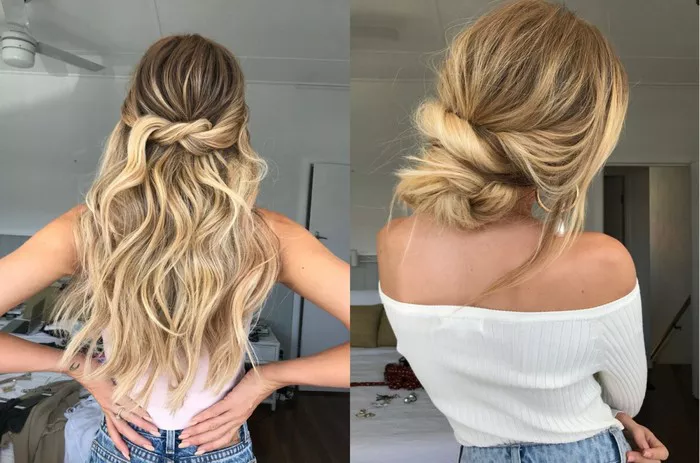Embarking on the journey of cutting your own hair can be both empowering and cost-effective. With the right tools, techniques, and guidance, DIY haircut tutorials offer an accessible way to achieve salon-worthy results at home. In this comprehensive guide, we’ll explore various haircut tutorials for different lengths and styles, providing the knowledge and confidence needed to master the art of DIY haircuts.
I. Essential Tools for DIY Haircuts
1. Hair Cutting Scissors:
Investing in a pair of quality hair cutting scissors is essential for achieving clean and precise cuts. Regular household scissors can cause uneven ends and damage the hair shaft.
2. Comb and Sectioning Clips:
A fine-tooth comb and sectioning clips are crucial for parting and securing hair sections. This ensures an organized approach to the haircut, making it easier to achieve symmetry and precision.
3. Hair Clippers:
For those attempting shorter hairstyles, a set of hair clippers with adjustable guards can be a valuable tool. Clippers are versatile and can help maintain a uniform length.
4. Mirror:
A large, well-placed mirror is crucial for viewing your hair from different angles. This ensures that you can assess and adjust your haircut accurately.
II. DIY Haircut Tutorials for Different Styles
5. Trimming Split Ends:
For a simple at-home trim, start with clean, dry hair. Comb through the hair to remove tangles and split ends. Take small sections, twist them, and snip the ends. This technique helps maintain length while addressing split ends.
6. Layered Haircut:
Achieving layers at home involves sectioning the hair, pulling it forward, and cutting at an angle. This creates soft, cascading layers. Start with small sections and adjust the length gradually for a natural look.
7. Bob Haircut:
Creating a classic bob involves sectioning the hair and cutting a straight line across. To add layers, angle the scissors while cutting. Bobs can be customized to be chin-length or longer, depending on personal preference.
8. Pixie Cut:
A pixie cut can be achieved with clippers for a short, edgy look. Comb the hair in sections, use the clippers with the desired guard length, and blend the sides and back. Trim the top with scissors to achieve the desired length and texture.
III. Tips for Successful DIY Haircuts
9. Start Small:
For beginners, start with small changes and simple techniques. Gradually build confidence before attempting more complex styles.
10. Keep It Wet:
Cutting wet hair provides a smoother, more controlled surface. Wet hair allows for even tension, making it easier to achieve precise cuts.
11. Use Proper Lighting:
Ensure good lighting to see hair texture, length, and any uneven areas. Natural daylight or a bright artificial light is ideal.
IV. Common FAQs about DIY Haircuts
Q1: Can I cut my own hair if I have no experience?
Yes, but it’s advisable to start with simple techniques, like trimming split ends, before attempting more complex cuts. Watch tutorials, practice on small sections, and gradually build confidence.
Q2: How do I avoid uneven cuts?
Sectioning the hair, using quality scissors, and regularly checking for symmetry in the mirror can help avoid uneven cuts. Take your time and make small adjustments as needed.
Q3: Can I use regular scissors for cutting hair?
Regular scissors can cause uneven cuts and damage the hair. Invest in a pair of quality hair cutting scissors designed for the task.
Q4: Is it possible to fix a DIY haircut mistake?
Yes, many mistakes can be fixed. For minor issues, like uneven lengths, adjustments can be made during subsequent trims. For more significant mistakes, seeking professional help may be necessary.
Q5: Are DIY haircuts suitable for all hair types?
DIY haircuts can be suitable for various hair types, but the level of difficulty may vary. Simple trims and styles can often be achieved at home, but more complex cuts may require professional expertise.
In conclusion, DIY haircut tutorials empower individuals to take control of their hair grooming routine. With the right tools, techniques, and a gradual approach, achieving salon-quality results at home is possible. Whether you’re maintaining your current style or trying a new one, DIY haircuts can be a rewarding and cost-effective alternative to salon visits.

